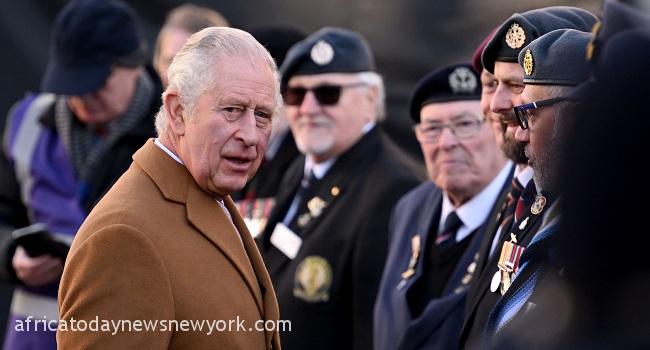A 23-year-old man from York in northern England has been arraigned after he was charged with ‘threatening behaviour’ after several eggs were thrown toward King Charles III during a visit to the city last month.
Patrick Thelwell will appear at York Magistrates’ Court on January 20 next year, the Crown Prosecution Service (CPS) said, following a probe into the November 9 incident.
He could face up to six months in prison if convicted, according to sentencing guidelines.
Thelwell was arrested on suspicion of a public order offence and released later that day, police said at the time, after several eggs landed near the monarch as he toured central York.
Read Also: President Buhari Holds Meeting With King Charles III
The university student remained free on bail, with part of his temporary release conditions that he could not carry eggs in public apart from when grocery shopping.
‘The CPS has authorised North Yorkshire Police to charge Patrick Thelwell with threatening behaviour contrary to Section 4 of the Public Order Act 1986,’ said Nick Price, head of the CPS Special Crime and Counter Terrorism Division.
‘This follows an investigation by police into an incident in which eggs were thrown at HM (His Majesty) The King in York on 9 November 2022.’
He noted that Thelwell has “the right to a fair trial” and restrictions on what can be reported in an active UK criminal case were in place.
‘It is extremely important there should be no reporting, commentary or sharing of information online which could in any way prejudice these proceedings,’ the CPS said.
Police in Bedfordshire, southern England, said earlier this month they had charged a 28-year-old man with a public order offence after an egg was allegedly thrown at Charles during a walkabout in the town of Luton, north of London.
He was released on bail and will appear in court on January 9.
Africa Charles, 74, became king on the death of his mother, Queen Elizabeth II, in September. She was buried after a state funeral and 10 days of national mourning.
But there were some protests against the hereditary principle of monarchy, in which Charles took over as head of state.

